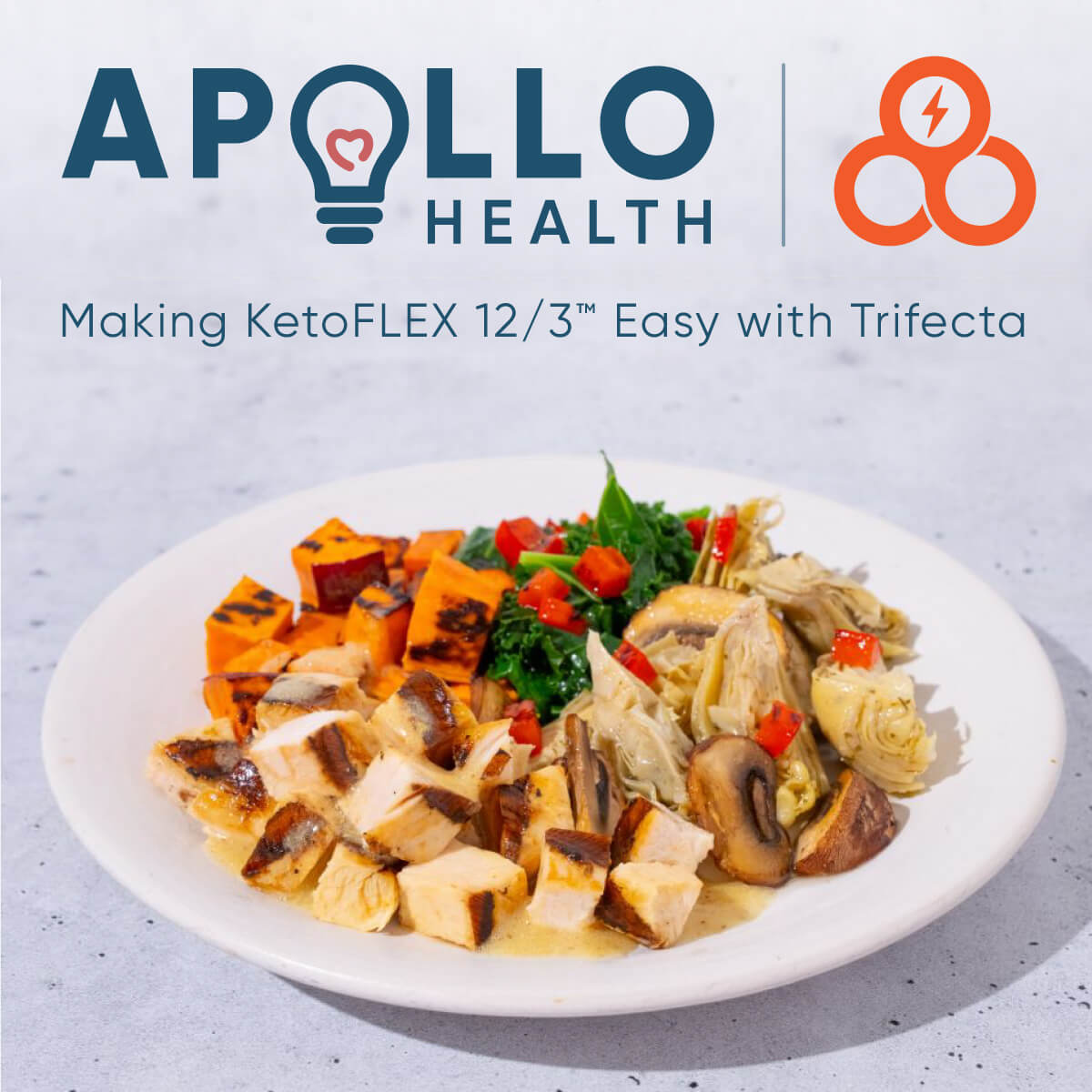September 19, 2024
The Patient Patient — Five Lessons Learned from My Injury Recovery

By Chris Coward, VP of Coaching for Apollo Health
Last April, I had a ski accident, which provided a lot of learning and opportunities to reflect on the parallels to doing the ReCODE protocol. I’m sharing my lessons here in the hopes that some of them will resonate and perhaps provide a new perspective as you navigate your brain health journey.
1. Patience and managing expectations – When it comes to results and outcomes for my health, I’m not that patient. So, when I was told that the recovery from my leg injury could take a year, I initially didn’t accept this (from my doctor or physical therapist). Can I be the exception? Maybe, but probably not. It’s a process that takes time, effort, and consistency. Sound familiar? There’s a reason the ReCODE clinical studies and other similar trials are nine months or longer. What are your expectations as you do the ReCODE protocol as to when you will feel different and see results? For me, I had some early wins and milestones achieved, which has given me hope of getting fully back to normal. And, like our ReCODE members, everyone is different. N of 1 applies when you are healing a broken leg or when you are dialing in your ReCODE protocol.
2. Asking for and receiving help is a strength, not a weakness – I have a sticky note on my computer that says, “My needs are a gift for others,” which reminds me to ask for help. I’ve always seen myself as the helper, not the “helpee,” which I know is silly as we can be both. It’s been such a learning edge for me to lean into all the beautiful offerings of help. My husband and I grew closer as he was so wonderfully helpful and attentive to my needs. He felt so good about being able to step up, assist, and be the hero that he is. Whether you are the care partner attending to your loved one or the individual experiencing cognitive decline, know that people want to help. Sometimes, they don’t know how and need a direct request. Don’t be afraid to ask for what you need.
3. Acute health problems require a different approach than chronic health problems – After my surgery, I was prescribed different pain medications that I normally would never take. I was afraid of the “oxys” and even the amount of ibuprofen and acetaminophen that was prescribed. But, I was told very strongly that my healing would not go well unless I stayed on top of the pain. That’s allI needed to hear in addition to experiencing one time the consequence of missing a pain dose. The acute situation died down after a few weeks so that I could change my strategy. This made me think about ReCODE versus PreCODE. The urgency and need for a high level of adherence to the protocol when experiencing cognitive decline is different than when one is asymptomatic. Working with a ReCODE practitioner is so important in helping create the treatment approach that best addresses your medical needs.
4. Finding your gratitude even when things are tough – There is always something to be grateful for. Always. And the act of looking for things to be grateful for contributes to your well-being and helps grow the strength of your gratitude. I can get teary-eyed when I share how much I appreciate my husband’s sacrifices to care for me for a few months. And the fact that I did not miss one musical performance with my bands, nor did I miss any work. I could still engage in those activities that are so important to me. People have commented I haven’t complained much about my situation, but it’s not because I’m holding it in or being super tough– I’ve gotten to do a lot of the things I love, and that overrides the challenges in making those things happen. When my mom was in a nursing home, and we weren’t always sure what she was tracking in our conversations, we could sometimes get a window into what made her happy. She would point at beautiful flowers, laugh at something funny, or light up when one of her children visited her. These were her motivators and moments of appreciation. We often hear from members starting the protocol how challenging it is not to eat certain foods that they love and have been eating for years and how depriving it feels. It’s almost like a grieving process. I invite you to play with a reframe of learning about the delicious foods that optimize your brain health, choosing something new to try or a healthy twist on an old favorite, and silently expressing gratitude for this food helping your brain heal.
5. Be mindful of your self-talk by being kind to yourself. We all have our inner critics, and crises can really amplify the volume of that voice inside our heads. For me, it has taken extreme self-compassion to manage my inner critic when she says things like, “You should have listened to your body when you were tired and fell a few times skiing that day and quit earlier,” or “You are getting old and not accepting that fact by engaging in risky activities.” On the one hand, my inner critic wants to keep me safe, and I can appreciate that. Still, on the other hand, it’s not helpful to ruminate on the “I should have … ” There’s a wonderful body of research on self-compassion, and one of the ways to be self-compassionate is to talk to yourself with the kindness you would extend to a friend in need. Easier said than done, of course :). This is worth working on, as your self-talk is integral to succeeding in following the ReCODE protocol. Instead of saying to yourself, “I’m so lame, I haven’t exercised in a few days, and I don’t have time today either for a good workout. I’m busy and lazy at the same time!” how about, “For various reasons, I haven’t prioritized exercise recently. I’m letting that go and getting back on track with 15 minutes of exercise today.” This distinction may not seem important, but it is.
Which, if any, of these lessons resonate with you? How can you reinforce your ReCODE journey with self-compassion, gratitude, asking for help, and cultivating patience? I would love to hear about your efforts. I can be reached at chris@ahnphealth.com.





